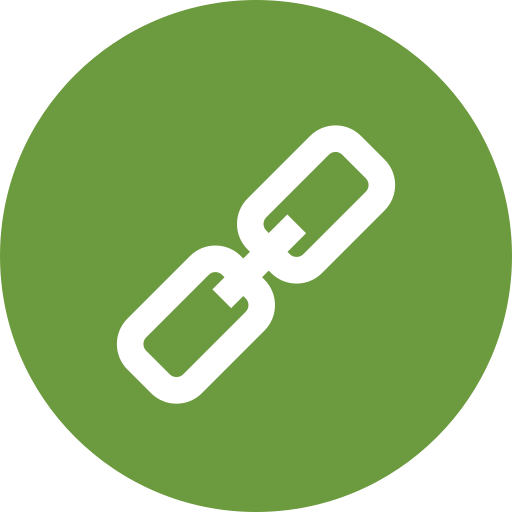| Product name | Per Pill | Savings | Per Pack | Order |
|---|---|---|---|---|
| 30 pills | $1.27 | $37.98 | ADD TO CART | |
| 60 pills | $0.99 | $16.66 | $75.96 $59.30 | ADD TO CART |
| 90 pills | $0.90 | $33.33 | $113.94 $80.61 | ADD TO CART |
| 120 pills | $0.85 | $49.99 | $151.92 $101.93 | ADD TO CART |
| 180 pills | $0.80 | $83.32 | $227.88 $144.56 | ADD TO CART |
| 270 pills | $0.77 | $133.31 | $341.82 $208.51 | ADD TO CART |
| Product name | Per Pill | Savings | Per Pack | Order |
|---|---|---|---|---|
| 30 pills | $1.14 | $34.20 | ADD TO CART | |
| 60 pills | $0.90 | $14.55 | $68.40 $53.85 | ADD TO CART |
| 90 pills | $0.82 | $29.10 | $102.60 $73.50 | ADD TO CART |
| 120 pills | $0.78 | $43.65 | $136.80 $93.15 | ADD TO CART |
| 180 pills | $0.74 | $72.75 | $205.20 $132.45 | ADD TO CART |
| 270 pills | $0.71 | $116.40 | $307.80 $191.40 | ADD TO CART |
| 360 pills | $0.70 | $160.06 | $410.40 $250.34 | ADD TO CART |
| Product name | Per Pill | Savings | Per Pack | Order |
|---|---|---|---|---|
| 30 pills | $1.10 | $33.01 | ADD TO CART | |
| 60 pills | $0.87 | $14.04 | $66.01 $51.97 | ADD TO CART |
| 90 pills | $0.79 | $28.08 | $99.01 $70.93 | ADD TO CART |
| 120 pills | $0.75 | $42.13 | $132.02 $89.89 | ADD TO CART |
| 180 pills | $0.71 | $70.21 | $198.03 $127.82 | ADD TO CART |
| 270 pills | $0.68 | $112.34 | $297.05 $184.71 | ADD TO CART |
| 360 pills | $0.67 | $154.47 | $396.07 $241.60 | ADD TO CART |
| Product name | Per Pill | Savings | Per Pack | Order |
|---|---|---|---|---|
| 60 pills | $0.82 | $49.32 | ADD TO CART | |
| 90 pills | $0.68 | $12.72 | $73.98 $61.26 | ADD TO CART |
| 180 pills | $0.54 | $50.90 | $147.96 $97.06 | ADD TO CART |
| 270 pills | $0.49 | $89.07 | $221.94 $132.87 | ADD TO CART |
| 360 pills | $0.47 | $127.24 | $295.92 $168.68 | ADD TO CART |
Exelon, a medication primarily used to treat symptoms of Alzheimer's disease and Parkinson's disease, has become a crucial component in the management of these neurological conditions. Available in various dosages, including 6 mg, 4.5 mg, 3 mg, and 1.5 mg, Exelon can be purchased through different channels, both online and offline. This article aims to provide an in-depth look at Exelon, its dosages, purchasing options, and the importance of quality when selecting a supplier.
Understanding Exelon Dosages
Exelon, also known by its generic name Rivastigmine, is a cholinesterase inhibitor that works by increasing the amount of a certain substance (acetylcholine) in the brain, which may help to improve memory and thinking. The medication is available in several dosages, each catering to different patient needs and medical conditions.
| Dosage | Description |
|---|---|
| Exelon 6 mg | The highest available dosage, typically prescribed for patients with severe Alzheimer's or Parkinson's symptoms. |
| Exelon 4.5 mg | A moderate dosage, often used for patients who have shown tolerance to lower doses or require a stronger medication effect. |
| Exelon 3 mg | A standard dosage, commonly prescribed for patients with mild to moderate symptoms of Alzheimer's or Parkinson's. |
| Exelon 1.5 mg | The lowest available dosage, usually recommended for patients who are new to the medication or have sensitive systems. |
Purchasing Exelon: Options and Considerations
For individuals looking to order Exelon, there are several options available, including online pharmacies, local drugstores, and direct purchases from manufacturers. When considering where to buy Exelon, it's essential to prioritize quality and authenticity to ensure the medication's efficacy and safety.
Some key considerations when purchasing Exelon include:
- Exelon 6 mg buy without a prescription: While it may be tempting to purchase medication without a prescription, it's crucial to consult a healthcare professional to determine the appropriate dosage and ensure safe usage.
- Purchase Exelon online from Canada: Buying medication online can be convenient, but it's vital to choose a reputable supplier to guarantee the quality of the medication.
- Quality Exelon 6 mg: When selecting a supplier, look for certifications, customer reviews, and a clear description of the medication's ingredients and manufacturing process.
Benefits of Buying Exelon Online
Buying Exelon online can offer several benefits, including:
- Convenience: Online pharmacies often operate 24/7, allowing patients to order Exelon with a visa or other payment methods at any time.
- Cost-effectiveness: Online suppliers may offer cheap Exelon 3 mg or discount 1.5 mg Exelon options, making the medication more accessible to a wider range of patients.
- Discretion: For individuals who prefer to maintain their privacy, buying Exelon online can provide a discreet and confidential purchasing experience.
Tips for Buying Exelon Online Safely
To ensure a safe and successful online purchasing experience, follow these guidelines:
- Research the supplier: Look for online pharmacies that are licensed and certified by relevant authorities.
- Check for customer reviews: Read feedback from other customers to gauge the supplier's reputation and quality of service.
- Verify the medication's authenticity: Ensure that the medication is manufactured by a reputable company and has not been tampered with during shipping.
- Consult a healthcare professional: Before buying Exelon 4.5 mg or any other dosage, consult with a doctor or pharmacist to determine the best course of treatment.
Conclusion
Exelon, available in dosages of 6 mg, 4.5 mg, 3 mg, and 1.5 mg, is a vital medication for managing Alzheimer's and Parkinson's symptoms. When purchasing Exelon online, it's crucial to prioritize quality, authenticity, and safety. By following the guidelines outlined in this article and consulting with a healthcare professional, patients can ensure they receive the best possible treatment while minimizing potential risks. Whether you order Exelon 1.5 mg with Amex or buy Exelon 6 mg without a prescription, remember to always prioritize your health and well-being.
Frequently Asked Questions
- Q: Can I buy Exelon 3 mg on line without a prescription?
- A: While some online pharmacies may offer Exelon without a prescription, it's recommended to consult a healthcare professional to determine the appropriate dosage and ensure safe usage.
- Q: Is it safe to purchase Exelon mastercard online?
- A: Yes, as long as you choose a reputable supplier and follow the guidelines outlined in this article, buying Exelon online can be a safe and convenient option.
- Q: Can I order cheap Exelon line and still ensure quality?
- A: Yes, many online pharmacies offer discount Exelon 6 mg options without compromising on quality. However, it's essential to research the supplier and verify the medication's authenticity before making a purchase.
Dementia is a complex and debilitating condition that affects millions of people worldwide. It is characterized by a decline in cognitive function, including memory, judgment, abstract thinking, and changes in personality. Moderate dementia is a stage of the disease where the symptoms are noticeable and interfere with daily life, but the patient is still able to perform some tasks independently. In this article, we will explore the effects of moderate dementia on patients with Alzheimer's disease and Parkinson's disease, and discuss the challenges and opportunities for managing this condition.
What is Moderate Dementia?
Moderate dementia is a stage of dementia where the patient experiences significant cognitive decline, but is still able to communicate and perform some daily tasks with assistance. At this stage, the patient may:
- Experience significant memory loss, including forgetting recent events, learning new information, and recalling familiar words and names
- Have difficulty with abstract thinking, problem-solving, and judgment
- Exhibit changes in personality, such as becoming easily agitated, anxious, or withdrawn
- Require assistance with daily tasks, such as bathing, dressing, and managing finances
The following table illustrates the stages of dementia and the corresponding symptoms:
| Stage | Symptoms |
|---|---|
| Mild | Forgetfulness, difficulty with learning new information, mild personality changes |
| Moderate | Significant memory loss, difficulty with abstract thinking, changes in personality, requires assistance with daily tasks |
| Severe | Near-total memory loss, difficulty with communication, requires full-time care |
Alzheimer's Disease and Moderate Dementia
Alzheimer's disease is the most common cause of dementia, accounting for 60-80% of all dementia cases. Moderate dementia is a common stage of Alzheimer's disease, where the patient experiences significant cognitive decline, but is still able to communicate and perform some daily tasks with assistance.
The symptoms of moderate dementia in Alzheimer's disease may include:
- Memory loss: Forgetting recent events, learning new information, and recalling familiar words and names
- Language difficulties: Difficulty with finding the right words, following conversations, and understanding written or spoken language
- Disorientation: Difficulty with understanding time, place, and situation
- Mood changes: Becoming easily agitated, anxious, or withdrawn
Here are some ways to manage moderate dementia in Alzheimer's disease:
- Medications: Cholinesterase inhibitors, such as donepezil and rivastigmine, may help manage symptoms of moderate dementia
- Cognitive training: Programs that focus on memory, attention, and problem-solving may help improve cognitive function
- Support groups: Joining a support group can provide emotional support and connect patients and caregivers with others who are experiencing similar challenges
Parkinson's Disease and Moderate Dementia
Parkinson's disease is a neurodegenerative disorder that affects movement, balance, and coordination. Moderate dementia is a common complication of Parkinson's disease, affecting up to 80% of patients.
The symptoms of moderate dementia in Parkinson's disease may include:
- Executive dysfunction: Difficulty with planning, organization, and decision-making
- Visuospatial difficulties: Difficulty with understanding visual information, such as reading, writing, and navigating
- Fluctuations in cognition: Experiencing good and bad days, with significant variability in cognitive function
- Mood changes: Becoming easily agitated, anxious, or withdrawn
Here are some ways to manage moderate dementia in Parkinson's disease:
- Medications: Dopamine agonists, such as ropinirole and pramipexole, may help manage symptoms of moderate dementia
- Cognitive training: Programs that focus on attention, memory, and executive function may help improve cognitive function
- Physical exercise: Regular exercise, such as walking or yoga, may help improve mobility and reduce cognitive decline
Challenges and Opportunities
Moderate dementia presents several challenges for patients, caregivers, and healthcare providers. Some of the challenges include:
- Diagnostic difficulties: Distinguishing between moderate dementia and other conditions, such as depression or delirium
- Management complexities: Balancing the need for independence with the need for assistance and support
- Caregiver burden: Providing emotional and practical support to patients with moderate dementia can be stressful and overwhelming
However, there are also opportunities for managing moderate dementia, including:
- Early intervention: Identifying and treating moderate dementia early can help slow cognitive decline and improve quality of life
- Personalized care: Tailoring care and support to the individual needs and preferences of the patient
- Support and resources: Providing patients and caregivers with access to support groups, educational resources, and respite care
In conclusion, moderate dementia is a significant stage of dementia that affects patients with Alzheimer's disease and Parkinson's disease. Understanding the symptoms, challenges, and opportunities for managing this condition is essential for providing high-quality care and support. By working together, healthcare providers, patients, and caregivers can help improve the lives of those affected by moderate dementia.
Recommendations for Patients and Caregivers
If you or a loved one is experiencing moderate dementia, here are some recommendations:
- Seek medical attention: Consult with a healthcare provider to determine the underlying cause of dementia and develop a treatment plan
- Join a support group: Connect with others who are experiencing similar challenges and learn from their experiences
- Prioritize self-care: Engage in activities that promote physical and emotional well-being, such as exercise, meditation, and socializing
- Access resources: Utilize educational resources, respite care, and other support services to help manage moderate dementia
By taking a proactive and supportive approach, patients and caregivers can navigate the challenges of moderate dementia and improve quality of life.
























